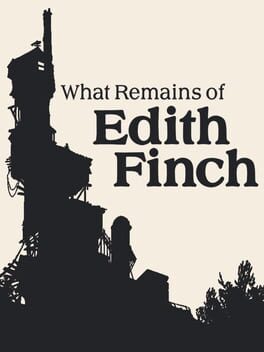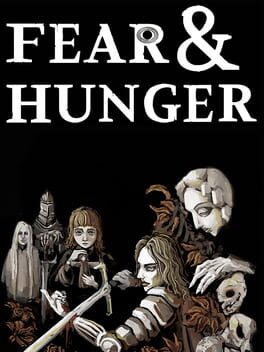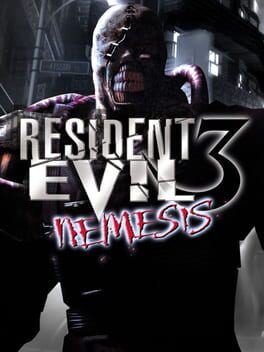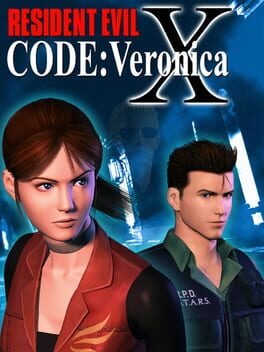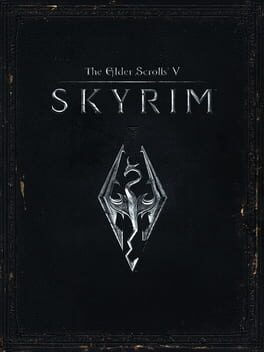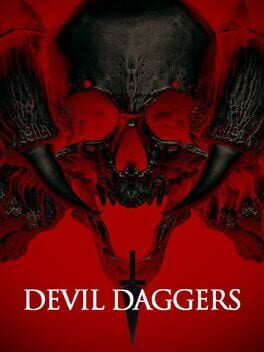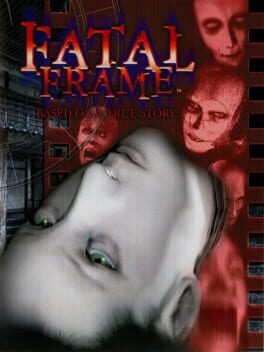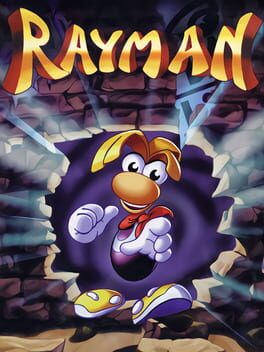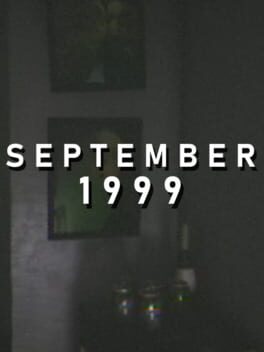jebhappy
109 Reviews liked by jebhappy
NieR: Automata
2017
I love Tyler Colp for this:
per PC Gamer roasting beloved games, Colp says, "Nier: Automata is for weebs who haven't read a book or watched a movie. It's cliché sci-fi anime garbage that only feels like it means something because the music owns and Yoko Taro Googled "socialism". Nier: Replicant is a better game because it gives its characters space to be humans, which is pretty important in a game about what it means to be human."
per PC Gamer roasting beloved games, Colp says, "Nier: Automata is for weebs who haven't read a book or watched a movie. It's cliché sci-fi anime garbage that only feels like it means something because the music owns and Yoko Taro Googled "socialism". Nier: Replicant is a better game because it gives its characters space to be humans, which is pretty important in a game about what it means to be human."
Anatomy
2016
Anatomy is one of those cultural fetish objects that is written about by critics as a sort of Voight-Kampff test or Rubicon to cross. It falls within a style of art that appeals to interpretation and self expression through criticism: as in poetry we have analyses of Dickinson’s poorly scrawled letters or Sapho’s endlessly retranslated fragments; as in music we have this overturning and mirroring newly appearing in the music of Julius Eastman right now; as in film there are endless essays on the short and long works of Jonas Mekas or on the varying iterations of parlour tricks in Marienbad. In games, this type of fetish criticism tends to be more rare - cyclically there are discussions on IPs reverentially (the Dark Souls of whatever or the timeline of Zelda) but rarely does there crop up a game that pours out writing equally revealing of the game and the player/writer. Of course, nearly anybody who has chosen to do some writing on games has gone at too much length over a specific game niche to their own interests, but less often is there a game with an audience seemingly populated only by those who wish to espouse at length both the merits of the software and the experiences of play surrounding that .exe.
I won’t give into that impulse here, in any way moreso than is typical of my longwinded frothing, but I will try to at least see from where the bridge has been constructed in Anatomy and to where it ports traffic in its players. Something beyond its place and time (beyond the narcissistic indie prestige that comes with its makeup and distribution) resonates at a unique frequency for people, and just as much as it is worth investigating the game’s explicit texts and its audience, it is worth investigating Anatomy’s cultural presence presence. Just as in Dickinson, Eastman, and Mekas, the tension between alienation and opacity is not secluded in the face value of Anatomy: there is a read that dignifies the idea of the house as something which is present and obscured, enshrining the psychological force demanding the critical/diaristic writing that populates Anatomy’s cultural profile. That divide and union typifies this style of intensely isolated and cozied art: Eastman’s hammering minimalism unseats yet forcefully teaches his melodies violently; Dickinson’s ironclad form is belied by contrasting and incomplete metaphors built of the familiar; Mekas’ capture of comforting everyday life is reduced to truncated memory stylised outside the initial experience of it and further made partial in each recall; Anatomy sections its rooms with the inset knowledge of North American floorplan familiarity, and then betrays the player with endless trespassing transgressions across boundary. All of these are contrasting and codependent ideas which must be bridged by an emotional reaction to the art - founding an expanse which can only be commuted across by firmly planting descriptions of the experience which set off the audience member, which then demand a thorough extolling of that journey for the coordinated expectation of the journey’s destination to complete the thematic resonance. In Anatomy, the idea of the home is the horror but it is also the stakes. The player must identify with a primordial, and subconscious, ordination of sleep, sustenance, and security while equivocating to antagonistic ideals which are invading the subconscious via text denying any particularity towards a universal feeling of those fulfilled urges. I think this is why Anatomy impresses itself so much on its players: it strongly makes a case for its themes in as outspoken a manner as it can and directly counters them to the unspoken understanding most players have in costumed iconography making up the world. It’s this wonderful push and pull of where the site of resonance sits - it moves from the player inhabiting the home to the home consuming the player.
Outside of the text itself, Anatomy is also one of those prestige art objects which, as I said above, can be fetishised for its value of incompleteness. This is often the outside article which denotes the opposing ideals of insider and outsider art, but more importantly, differentiates insider and outsider audiences. The everything for everyone style of creation is the dominant form in all popular mediums - blockbusters like Avatar or Star Wars, thrillers from Stephen King or adventures from Brandon Sanderson, games like Assassin’s Creed or Halo: these are experiences which demand completion of their themes not from the place in the interfacer where those themes mine their iconographic substance, but from the collective consciousness informed by a heavily authored culture. Whether that is manichean ethics, broad antediluvian eco-populism, by numbers approaches of rudimentary logics initialising fictional systems and those fictions operating within them, or even mundanity of hyper familiar context sensitivities across an engine - all of these popular media require not an excitement of new and strange, often painful, mortal fuels within any individual’s capacity to care for what is being communicated, but instead scrap scaffolded by audience populism. Not that there is anything wrong with that on its face, especially when utilised for wrestling popular narratives away from dominant and harmful cultural forces (such as with Star Wars’ parodying 20th century American imperialism), but it typically leads to less acute extolling across any singular piece’s audience, such as is seen in Anatomy and its cultural cohorts. So why does Anatomy cause pens to burst from the palms of its players? Because suburban houses are scarier than the tombs in Tomb Raider, obviously.
I won’t give into that impulse here, in any way moreso than is typical of my longwinded frothing, but I will try to at least see from where the bridge has been constructed in Anatomy and to where it ports traffic in its players. Something beyond its place and time (beyond the narcissistic indie prestige that comes with its makeup and distribution) resonates at a unique frequency for people, and just as much as it is worth investigating the game’s explicit texts and its audience, it is worth investigating Anatomy’s cultural presence presence. Just as in Dickinson, Eastman, and Mekas, the tension between alienation and opacity is not secluded in the face value of Anatomy: there is a read that dignifies the idea of the house as something which is present and obscured, enshrining the psychological force demanding the critical/diaristic writing that populates Anatomy’s cultural profile. That divide and union typifies this style of intensely isolated and cozied art: Eastman’s hammering minimalism unseats yet forcefully teaches his melodies violently; Dickinson’s ironclad form is belied by contrasting and incomplete metaphors built of the familiar; Mekas’ capture of comforting everyday life is reduced to truncated memory stylised outside the initial experience of it and further made partial in each recall; Anatomy sections its rooms with the inset knowledge of North American floorplan familiarity, and then betrays the player with endless trespassing transgressions across boundary. All of these are contrasting and codependent ideas which must be bridged by an emotional reaction to the art - founding an expanse which can only be commuted across by firmly planting descriptions of the experience which set off the audience member, which then demand a thorough extolling of that journey for the coordinated expectation of the journey’s destination to complete the thematic resonance. In Anatomy, the idea of the home is the horror but it is also the stakes. The player must identify with a primordial, and subconscious, ordination of sleep, sustenance, and security while equivocating to antagonistic ideals which are invading the subconscious via text denying any particularity towards a universal feeling of those fulfilled urges. I think this is why Anatomy impresses itself so much on its players: it strongly makes a case for its themes in as outspoken a manner as it can and directly counters them to the unspoken understanding most players have in costumed iconography making up the world. It’s this wonderful push and pull of where the site of resonance sits - it moves from the player inhabiting the home to the home consuming the player.
Outside of the text itself, Anatomy is also one of those prestige art objects which, as I said above, can be fetishised for its value of incompleteness. This is often the outside article which denotes the opposing ideals of insider and outsider art, but more importantly, differentiates insider and outsider audiences. The everything for everyone style of creation is the dominant form in all popular mediums - blockbusters like Avatar or Star Wars, thrillers from Stephen King or adventures from Brandon Sanderson, games like Assassin’s Creed or Halo: these are experiences which demand completion of their themes not from the place in the interfacer where those themes mine their iconographic substance, but from the collective consciousness informed by a heavily authored culture. Whether that is manichean ethics, broad antediluvian eco-populism, by numbers approaches of rudimentary logics initialising fictional systems and those fictions operating within them, or even mundanity of hyper familiar context sensitivities across an engine - all of these popular media require not an excitement of new and strange, often painful, mortal fuels within any individual’s capacity to care for what is being communicated, but instead scrap scaffolded by audience populism. Not that there is anything wrong with that on its face, especially when utilised for wrestling popular narratives away from dominant and harmful cultural forces (such as with Star Wars’ parodying 20th century American imperialism), but it typically leads to less acute extolling across any singular piece’s audience, such as is seen in Anatomy and its cultural cohorts. So why does Anatomy cause pens to burst from the palms of its players? Because suburban houses are scarier than the tombs in Tomb Raider, obviously.
Why is this narrated? The direction for performances flatten every spoken line, which in themselves offer no setting dynamism or effective characterisation, and collapse the individual voices of the game's cast into a single barely awake drone. The chase for seriousness is maddening with this understated read; every Finch is already a parody character, so aggrandised is their position in this world, keeping quarters as if they are consorts of many themed Ikea complete room renovations - a gross misunderstanding of art design, in my opinion: it contrasts the magical realism, or heightened reality, of the house's architecture and possible supernaturalia with an utterly mundane and ill-courted seeming interiored juvenilia of daily life. How at home are we meant to feel with the glowing house in the harbour when looking out of what is effectively a wizard's tower if the room is coated in kid's stickers and hunting gear? The script itself is barely more than descriptive, and is completely redundant to the game - if this had shipped nearly wordless, playing through each of the segments with no narration from Edith, it would have strung together a surreal but obvious link between a people whose downfalls seem tragic in the traditional sense. With the VO, and presentation for about half of the Finch fam, they all read as gullible, immaterial, or idiotic. Imagine reading Dubliners and instead of having described to you the rigour and depth of inner life extent to the city and human condition, everybody was a bit floaty and got hit by passing trains or choking on pheasant bones. UGH
Fear & Hunger
2018
Games for me can fail in two ways: 1) They can be trite, obtusely defined, product oriented amalgams of mechanics that serve no practical, theoretical, or material definition of art (whether that be Kael's appreciable "trash" or Danto's atomic transfigurative, both are viable as an end goal) that play in an aptly metaphoric exercise for hiking in smog, or 2) they can suffer the pile up of disparities conceived well enough in isolation all colliding wondrously after being let loose to pursue a goal lofty and tremendous. Ubisoft open world games are nearly always the first, as is something like Dead Estate, and Fear and Hunger is, heart-achingly, of the second class.
Grotesqueness immediately feels pungent within the construction of a JRPG in a smoke pervasive that doesn't cloud or fog or fill up a room with stink in most other ordered mechanical genres; the slowness of every interaction, each step a choice and each choice is a boolean factorial that grows exponentially from each serially made prior, feeling less the acclimatizing integration of your action parameters than the more adjective laden verb sets of other games - shooters take place behind the gun, visual novels take place behind the text, walking sims take place off the path, and JRPGs take place in the menus. If the menu is optioned as attack evil monsters, run to save a village, and heal your good and loyal friends, excellent, a choice along moral lines is codified by systemic immutability. In Fear and Hunger, that immutability is formed around vileness that is without remorse or forgiveness in contextual granularity; you choose to desecrate corpses, commit sexual atrocities, profane the idea of equilibrium as we know it, all without the flexibility that excuses action in something situationally obscured by minor art and mechanical vagaries. Short and simple, you either are the type of player who is irredeemable systemically in this world in a way that Bioshock or Spec Ops did not allow for, or you are not, and if you are not, you are probably dead.
Death at that agentless squeamish impulse to not disabuse yourself of the empathetic rote exacerbations players have meta-texted their way into every game is not this games weakness. I was willing to play the game's gambit when I felt it was necessary to progress, and I did it over and over again and it always felt objectionably terrible. Death was a lesson in calcifying cruelty as a lens that people don't have to take but may be enticed to take should their hopes be purely selfish (there is a reason that the other PCs tell you to leave, and the reason is both impressionable selfishness on your part and their part), and repeatedly dying didn't bother me. What makes this game, for me, an abject failure is that recidivistically plunging my hands into the murk was offset by the lack of developer commitment to their greater strengths: primarily, death and horrible action are your markers of progression. Yet, the mechanical lesson after internalizing and continually working over those emotions is not throw your babes into the blaze, but run away after each turn of combat, and restart the campaign every time you load in until you randomly loot the containers with a high roll, and save before you do your coin tosses for the floor, and always take lockpicking not because you think genuinely that thievery and deprivation is your good for this world but because it's the gaudily correct mechanical progression interaction.
That's the problem with Fear and Hunger - its spreadsheet doesn't want to be placed underneath the organs and implements of a Bosch painting, and in games, mechanical framing
always
always
always
ALWAYS imposes itself first and last in the evaluation of thematic concerns.
Grotesqueness immediately feels pungent within the construction of a JRPG in a smoke pervasive that doesn't cloud or fog or fill up a room with stink in most other ordered mechanical genres; the slowness of every interaction, each step a choice and each choice is a boolean factorial that grows exponentially from each serially made prior, feeling less the acclimatizing integration of your action parameters than the more adjective laden verb sets of other games - shooters take place behind the gun, visual novels take place behind the text, walking sims take place off the path, and JRPGs take place in the menus. If the menu is optioned as attack evil monsters, run to save a village, and heal your good and loyal friends, excellent, a choice along moral lines is codified by systemic immutability. In Fear and Hunger, that immutability is formed around vileness that is without remorse or forgiveness in contextual granularity; you choose to desecrate corpses, commit sexual atrocities, profane the idea of equilibrium as we know it, all without the flexibility that excuses action in something situationally obscured by minor art and mechanical vagaries. Short and simple, you either are the type of player who is irredeemable systemically in this world in a way that Bioshock or Spec Ops did not allow for, or you are not, and if you are not, you are probably dead.
Death at that agentless squeamish impulse to not disabuse yourself of the empathetic rote exacerbations players have meta-texted their way into every game is not this games weakness. I was willing to play the game's gambit when I felt it was necessary to progress, and I did it over and over again and it always felt objectionably terrible. Death was a lesson in calcifying cruelty as a lens that people don't have to take but may be enticed to take should their hopes be purely selfish (there is a reason that the other PCs tell you to leave, and the reason is both impressionable selfishness on your part and their part), and repeatedly dying didn't bother me. What makes this game, for me, an abject failure is that recidivistically plunging my hands into the murk was offset by the lack of developer commitment to their greater strengths: primarily, death and horrible action are your markers of progression. Yet, the mechanical lesson after internalizing and continually working over those emotions is not throw your babes into the blaze, but run away after each turn of combat, and restart the campaign every time you load in until you randomly loot the containers with a high roll, and save before you do your coin tosses for the floor, and always take lockpicking not because you think genuinely that thievery and deprivation is your good for this world but because it's the gaudily correct mechanical progression interaction.
That's the problem with Fear and Hunger - its spreadsheet doesn't want to be placed underneath the organs and implements of a Bosch painting, and in games, mechanical framing
always
always
always
ALWAYS imposes itself first and last in the evaluation of thematic concerns.
no self imposed challenges or other foolishness with this one for me. i've always been a bit of a flop with this one (3 has been the hardest of the original trilogy for me by a large margin) so i just went for an A rank.
i somehow made it to the clock tower boss fight without using any healing of any kind and had a huge stockpile of herbs in my inventory chest which gave me wiggle room to save and rush less. the grave digger as always is a giant asshole and i almost died in the very last fight but i made it. i never thought this would be within my abilities so i'm really pleased.
maybe someday i can knife only or no save this game or get better at CVX or something.
i somehow made it to the clock tower boss fight without using any healing of any kind and had a huge stockpile of herbs in my inventory chest which gave me wiggle room to save and rush less. the grave digger as always is a giant asshole and i almost died in the very last fight but i made it. i never thought this would be within my abilities so i'm really pleased.
maybe someday i can knife only or no save this game or get better at CVX or something.
being so Normal rn because i finally had the stars align and made it through the game without any of my normal issues. i had only used herbs to heal, saved once at the disc change, and not died which was on the road to an S rank. i only thought i was too slow.
as it turned out i made it just in time (4:18 while the requirement was 4:30) but i died in the most embarrassing way.
instead of dying at any of the normal chokepoints (Nosferatu, the fucking cinder block, etc.) i failed during a scripted bit before the last boss because what is Code Veronica without one shit design decision after another. <3
none of this would have been as bad if the game wasn't such a behemoth of shit to deal with (each disc is pushing past the length of the other classic style RE games on its own) but that just stacks on top of the other baffling decisions.
will probably come back and do the second disc to go for the S rank someday as long as my save never gets lost but i just can't be bothered now.
as it turned out i made it just in time (4:18 while the requirement was 4:30) but i died in the most embarrassing way.
instead of dying at any of the normal chokepoints (Nosferatu, the fucking cinder block, etc.) i failed during a scripted bit before the last boss because what is Code Veronica without one shit design decision after another. <3
none of this would have been as bad if the game wasn't such a behemoth of shit to deal with (each disc is pushing past the length of the other classic style RE games on its own) but that just stacks on top of the other baffling decisions.
will probably come back and do the second disc to go for the S rank someday as long as my save never gets lost but i just can't be bothered now.
Anatomy
2016
This review contains spoilers
a game that is simple, less of a playable game and more of like an interactive experience. a walking simulator loop
you move through a house and pick up tapes as things crumble bit by bit around you
i forget about a lot of things as i come in and out of interests but the writing in this game eternally lives in the back of my mind
the prose and imagery is so rich and the concept deeply fucking terrifying, but saddening at the same time.
this and control (thanks jacob geller) forever locked this concept of a living, feeling space as a favorite of mine forever
the graininess of the filter and the audio quality and narration add a lot to its amazing atmosphere overall. but i do wish it had captions
will never forget the horrible feeling i got that screamed 'i am not safe here' after i watched a playthrough of this and i had to go to bed
one of my favorite things ever
you move through a house and pick up tapes as things crumble bit by bit around you
i forget about a lot of things as i come in and out of interests but the writing in this game eternally lives in the back of my mind
the prose and imagery is so rich and the concept deeply fucking terrifying, but saddening at the same time.
this and control (thanks jacob geller) forever locked this concept of a living, feeling space as a favorite of mine forever
the graininess of the filter and the audio quality and narration add a lot to its amazing atmosphere overall. but i do wish it had captions
will never forget the horrible feeling i got that screamed 'i am not safe here' after i watched a playthrough of this and i had to go to bed
one of my favorite things ever
Pentiment
2022
What makes Pentiment more than an interactive Name of the Rose is the expansion of the narrative over multiple time-scales, with decisions echoing throughout days, seasons and decades. While Rose is confined to a few days, taking place in “real time”, Pentiment expands further through time (and space, from within the abbey and then out into the surrounding village). The narrative momentum gradually slows to a haunting, sad resolution.
Similar to Pathologic 2, time is against you, and no mystery is ever fully resolved. With the little info collected in your investigations, the truth is always incomplete, and a lingering guilt is cast over your decisions. Unlike Patho 2, time progresses in an abstracted way: during the day you may talk to anyone you find, but engaging in work, meals or certain events will advance time. There is no real-time simulation of the town, but the ever-changing seasons, events, architecture and people give Tassing the illusion of an analog, living world that many ‘dynamic’ open-worlds struggle to evoke.
I was initially put off by the art direction, akin to contemporary animation like Song of the Sea/Secret of Kells (which director Josh Sawyer has mentioned as an early influence) and I was looking for something uglier, maybe closer to the work found within the manuscript’s margins. Ultimately, this does lend a more expressive, readable quality to the characters and world.
Similar to Pathologic 2, time is against you, and no mystery is ever fully resolved. With the little info collected in your investigations, the truth is always incomplete, and a lingering guilt is cast over your decisions. Unlike Patho 2, time progresses in an abstracted way: during the day you may talk to anyone you find, but engaging in work, meals or certain events will advance time. There is no real-time simulation of the town, but the ever-changing seasons, events, architecture and people give Tassing the illusion of an analog, living world that many ‘dynamic’ open-worlds struggle to evoke.
I was initially put off by the art direction, akin to contemporary animation like Song of the Sea/Secret of Kells (which director Josh Sawyer has mentioned as an early influence) and I was looking for something uglier, maybe closer to the work found within the manuscript’s margins. Ultimately, this does lend a more expressive, readable quality to the characters and world.
A complete farce of an experience. If I wanted to aimlessly run around a miserable medieval hellscape with no guidance, constantly getting into situations I'm vastly overqualified or underqualified for, led on by the promise of grand rewards and experiences but perpetually unsurprised by disappointing results, I would simply go outside more often.
Devil Daggers
2016
This game is so fucking intelligent but I hate playing it.
Welcome to hell featuring:
-your mistakes constantly adding up quick and presented to you in crystal detail
-where as you get better the downtime increases and you relive small annoyances
-surviving tooth and nail for seconds at a time while you fight with your nerves and maybe a panic attack or two (it gets fucking ridiculous)
Not for the faint of heart because it will compound into you. Devilishly addicting game, avoid at all costs, holy fuck how did i spend several hours already.
(Managed to time 231 seconds, #10 of my friends. That's the best I can do atm)
Welcome to hell featuring:
-your mistakes constantly adding up quick and presented to you in crystal detail
-where as you get better the downtime increases and you relive small annoyances
-surviving tooth and nail for seconds at a time while you fight with your nerves and maybe a panic attack or two (it gets fucking ridiculous)
Not for the faint of heart because it will compound into you. Devilishly addicting game, avoid at all costs, holy fuck how did i spend several hours already.
(Managed to time 231 seconds, #10 of my friends. That's the best I can do atm)
Fatal Frame
2001
this has a really interesting, arcadey combat system that stands out within its own series (or what i remember of it). dealing with said combat is all fun and good until you see some of the spots they expect you to fight ghosts in though. with some enemies seeing three or more repeat encounters it all gets to be a bit much.
clunkier gameplay mechanics aside, i was really impressed with this. especially as the first go around for the series.
the centralized house setting allows for mood building and level design. progressing through the in-game nights and unlocking new routes throughout the rooms was satisfying in the ways that most of my favorites of this type are.
looks like there's a decent amount of content here beyond the main game. costumes, a battle mode, difficulty settings, a NG+, and so on. will definitely be dipping into some of it.
glad to have finally gotten around to playing and finishing one of these games after spending so much time with II as an early teen (but never finishing it) and having such a love for horror. not going to wait as long to get to the sequels, hopefully.
clunkier gameplay mechanics aside, i was really impressed with this. especially as the first go around for the series.
the centralized house setting allows for mood building and level design. progressing through the in-game nights and unlocking new routes throughout the rooms was satisfying in the ways that most of my favorites of this type are.
looks like there's a decent amount of content here beyond the main game. costumes, a battle mode, difficulty settings, a NG+, and so on. will definitely be dipping into some of it.
glad to have finally gotten around to playing and finishing one of these games after spending so much time with II as an early teen (but never finishing it) and having such a love for horror. not going to wait as long to get to the sequels, hopefully.
Dark Souls
2011
Only FromSoftware copy their own homework and get away with it. From Demons Souls to Elden Ring, the iconic brutal combat gameplay remains, only midly adjusted with each title.
I'll admit I'm late to the game, quite literally, but Dark Souls is my favourite of theirs so far, and maybe an all-timer.
The same level of immense satisfaction comes from conquering seemingly impossible forces, but it is the connectedness of the world here that makes you feel existentially insignificant and all the more bold in exploring unknown territory.
Whilst a notch down from the visual flair of subsequent titles - Bloodborne, Elden Ring, etc - the level design here is still superb: I think it is the vast size and sonic emptiness of places like the Demon Ruins or Great Hollow that make them utterly terrifying, especially upon uncovery of the indifferent creatures that lurk there. And if you don't have that special fast travel item, you must traverse between these places, miles sometimes deep into lava pits underground or at the peaks of castles in the clouds; I can't express enough that wondrously epic scale acheived here through such variation - it's probably not as big as Skyrim but by god it just feels bigger.
Another key strength is character design: from smaller, comical side characters such as the onion shaped knight Siegmeyer of Catarina to otherworldly beasts such as the primordial serpent Frampt (almost shat myself when I first saw him).
But essential to the bleak atmosphere of Dark Souls, alongside the sparingly used music and foggy, dingy locations, is the abundance of characters who simply sit there, beaten and tarnished - they have truly lost. In a game that places so much emphasis on dying, this highlights the whole point (of Souls games and gaming in general): you can die as many times as you like, but you only lose when you give up.
I'll admit I'm late to the game, quite literally, but Dark Souls is my favourite of theirs so far, and maybe an all-timer.
The same level of immense satisfaction comes from conquering seemingly impossible forces, but it is the connectedness of the world here that makes you feel existentially insignificant and all the more bold in exploring unknown territory.
Whilst a notch down from the visual flair of subsequent titles - Bloodborne, Elden Ring, etc - the level design here is still superb: I think it is the vast size and sonic emptiness of places like the Demon Ruins or Great Hollow that make them utterly terrifying, especially upon uncovery of the indifferent creatures that lurk there. And if you don't have that special fast travel item, you must traverse between these places, miles sometimes deep into lava pits underground or at the peaks of castles in the clouds; I can't express enough that wondrously epic scale acheived here through such variation - it's probably not as big as Skyrim but by god it just feels bigger.
Another key strength is character design: from smaller, comical side characters such as the onion shaped knight Siegmeyer of Catarina to otherworldly beasts such as the primordial serpent Frampt (almost shat myself when I first saw him).
But essential to the bleak atmosphere of Dark Souls, alongside the sparingly used music and foggy, dingy locations, is the abundance of characters who simply sit there, beaten and tarnished - they have truly lost. In a game that places so much emphasis on dying, this highlights the whole point (of Souls games and gaming in general): you can die as many times as you like, but you only lose when you give up.
Rayman
1995
I know it, you probably know it, probably anyone with more than a passing familiarity with the Rayman series knows that the first game is really hard. But as someone who grew up in the 8-bit era where games were brutally hard by default, and who generally enjoys playing rage games like I Wanna Be The Guy, this game got me wondering what it is about some hard games that filters me more than others.
The answer I arrived at ended up being pretty simple: the best hard games find a way to be fun anyway. The best rage games get really creative with their trolling and don't punish death too harshly, making you want to keep playing. Games like Qwop and Octodad make it ridiculously hard to do the simplest tasks, but also make your inevitable failures hilarious. Road Rash 64 had plenty of cheap jank but was gloriously chaotic and offered you incentives for causing chaos, so you could lose a race and still have a good time.
Unfortunately Rayman has very little to balance out its unforgiving difficulty. Every gimmick, from the tiny slippery platforms to the darkened rooms to the reversed controls to the autoscrolling sections (which don't give you any warning when they start!) to the long waiting sections interspersed with instant-death hazards, are obnoxiously unfun and strung together in gauntlets that drag on for way too long. It even takes a leaf out of Fantasia's book by being a collectathon with extremely obtuse requirements; in order to unlock the final stage you need to find and break every single hidden cage in every single level. And the problem is the requirements aren't so much puzzles as they are completely arbitrary, like "walk to this completely unremarkable corner of the map then walk left and suddenly the cage is there!"
It's not all bad: the visual style is really great, Rayman is a cool wholesome little dude, and the setpieces/bosses that aren't obnoxious are actually quite creative and memorable. But this was unfortunately one of the games that crossed the Bullshit Event Horizon where the isolated "bullshit" moments were so plentiful that they became my main experience with the game.
I'll get to the sequels eventually once my trauma wears off, and I promise I'll bring an open mind!
The answer I arrived at ended up being pretty simple: the best hard games find a way to be fun anyway. The best rage games get really creative with their trolling and don't punish death too harshly, making you want to keep playing. Games like Qwop and Octodad make it ridiculously hard to do the simplest tasks, but also make your inevitable failures hilarious. Road Rash 64 had plenty of cheap jank but was gloriously chaotic and offered you incentives for causing chaos, so you could lose a race and still have a good time.
Unfortunately Rayman has very little to balance out its unforgiving difficulty. Every gimmick, from the tiny slippery platforms to the darkened rooms to the reversed controls to the autoscrolling sections (which don't give you any warning when they start!) to the long waiting sections interspersed with instant-death hazards, are obnoxiously unfun and strung together in gauntlets that drag on for way too long. It even takes a leaf out of Fantasia's book by being a collectathon with extremely obtuse requirements; in order to unlock the final stage you need to find and break every single hidden cage in every single level. And the problem is the requirements aren't so much puzzles as they are completely arbitrary, like "walk to this completely unremarkable corner of the map then walk left and suddenly the cage is there!"
It's not all bad: the visual style is really great, Rayman is a cool wholesome little dude, and the setpieces/bosses that aren't obnoxious are actually quite creative and memorable. But this was unfortunately one of the games that crossed the Bullshit Event Horizon where the isolated "bullshit" moments were so plentiful that they became my main experience with the game.
I'll get to the sequels eventually once my trauma wears off, and I promise I'll bring an open mind!
This review contains spoilers
slept on this one a bit, i fear. knowing this was a walking simulator i kinda expected the worst as i have a really hit or miss history with games of this kind but in the end it can hold its own among my other favorites. let me celebrate that.
there's just so much to this that i loved. at first i thought this was gonna just be a bit of an interesting oddity with the differing gameplay types and gimmicks in the segments but before i knew it this had me fully engrossed. absolutely obsessed with the setting (the house almost feeling completely absent of an architecture style) and the little details thrown throughout.
the story in and of itself at a glance doesn't seem special but by the end of the game it had so much impact for me. the delivery of Edith saying "and then I was alone..." near the end in context of everything else completely destroyed me. i didn't expect this to be a game i'd take so much from in terms of things to think about for awhile after playing but that's what i got.
can't wait to replay this someday.
there's just so much to this that i loved. at first i thought this was gonna just be a bit of an interesting oddity with the differing gameplay types and gimmicks in the segments but before i knew it this had me fully engrossed. absolutely obsessed with the setting (the house almost feeling completely absent of an architecture style) and the little details thrown throughout.
the story in and of itself at a glance doesn't seem special but by the end of the game it had so much impact for me. the delivery of Edith saying "and then I was alone..." near the end in context of everything else completely destroyed me. i didn't expect this to be a game i'd take so much from in terms of things to think about for awhile after playing but that's what i got.
can't wait to replay this someday.


